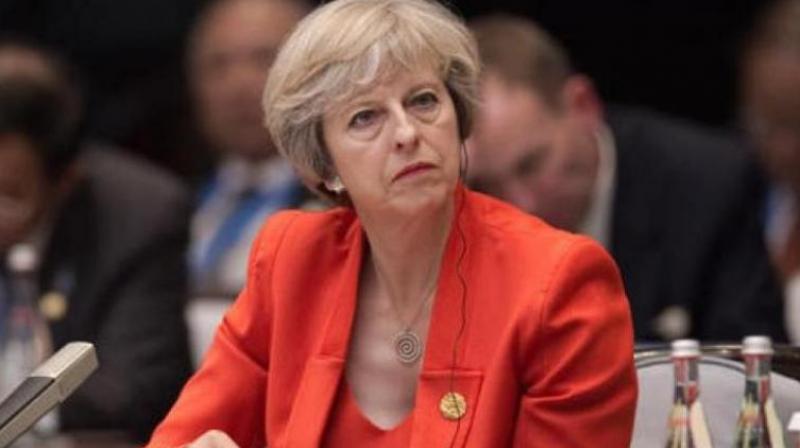Cabbages & Kings: Revisiting India's World War I role

“Pride came before the fall
Though Adam was proud to eat the apple.
The prayer begging forgiveness for all
My faults and sins
From conscience begins
To echo around my mind’s chapel……”
From Ode to Immobility by Bachchoo
Church bells rang out on the dot of 11 am on November 11th, the 11th month of the year, to commemorate the 100th anniversary of the end of World War I. At 11 in the morning on 11.11.1918 the Armistice was signed and the Germans surrendered to the allies whom they had provoked, initiating the slaughter of millions.
In London the Queen and the royals, Theresa May and her husband and political leaders gathered at the Royal Festival Hall where the massed ceremonial troops and bands of the armed forces staged a “tattoo”, a display of marching to military tunes and songs of remembrance and gratitude for those British who died in this war. A hundred years have devoured everyone who had anything to do with it, but those who suffered the loss of relatives in Word War II, and some who fought in this next holocaust of European and Imperialist nations, substituted. Veterans and the relatives of the dead marched onto stage wearing red poppies. The occasion was broadly dedicated to those who gave their lives for King and Country.
In Paris at the Arc de Triomphe, President Macron had invited Vladimir Putin, Donald Trump and Angela Merkel to pay their respects to the war dead.
For the French it was a tribute to those who died defending the republique. For the Russians it must have been a memorial to those who died fighting the Germans with whom their subsequent government made a pact when their Communist Party in 1917 persuaded survivors of the Czar’s army to abandon the war and return to Russia and revolution. For Americans it was probably to remind Europe that though they fought the Japanese across another ocean in another war, that they depended on America to win both.
As for Merkel, had she joined the representatives of the nations who fought the Kaiser’s armies to commemorate the German dead, to say sorry for German aggression or to demonstrate that the European Union had put paid to armed wars? But perhaps not to economic ones.
Three of these countries had kings and the wars were fought in the name of both. The memorial ceremonies, certainly in Britain, were affirmations of such contemporary tribalism.
Indians too had a country and at the time of World Wars I and II we had emperors. These emperors were the titular heads of the Vilayati tribes in a far-off land which had colonised India and commandeered or induced the Indian nation to contribute soldiers, sipahis, to be shipped to Europe and to fight, be captured, wounded or to die. Imperial Britain shipped 1,500,000 Indian soldiers to fight its German and Turkish enemies.
On November 4 this year, a week before the memorial ceremonies and wreath-layings in London, the northern town of Smethwick unveiled the statue of a World War I Sikh soldier. The local council which commissioned the 10-foot-statue sculpted by a Black Country (a local name for the area) sculptor, Luke Perry, declared it as a memorial to all the Indian soldiers who had given their lives in both world wars.
The bronze statue named Lions of The Great War stands outside the Guru Nanak Gurdwara in Smethwick and on the Thursday following its unveiling, it was vandalised. The words “Sepoys No More” were daubed on the plinth of the statue. The slogan is anti-immigrant and translated means “no more Asians should be allowed into Smethwick or indeed into Britain”.
This graffiti is particularly nasty as the memorial is not to immigrant settlers in any age in Britain, but to the soldiers from a conquered land who owed nothing to Britain, had no cause to oppose the Kaiser’s armies or those of the Caliph of Turkey; soldiers who probably enrolled in large numbers in the imperial army as the only way to earn a livelihood; soldiers who came and fought and died.
They were “OR”s, “other ranks” as my officer father, who enrolled in the British Indian Army in 1938 and fought in World War II, called them.
They died fighting a war in which they had no stake or cause apart from an induced loyalty to a foreign command.
When through my youthful socialist consciousness I demanded from my dad why he had enlisted voluntarily in the British Indian Army, he insisted that he was heeding Mahatma Gandhi’s words and injunctions to help the British who promised they would go if Indians helped them through the war — I never found out what these injunctions were. He also said he wanted to stop the Japanese invasion because he judged them as being the greater of two evils, though he often made ambivalent judgments about India under British rule.
Neither Britain nor India has come to any conclusions about the colonial relationship. As bereaved people say, there has been no “closure”. Perhaps with historical judgment there can’t be. On the one hand we have the populist but sketchy and provenly-mistaken assessment of our handsome politician Shashi Tharoor. Then we have his opponent and challenger, the historical writer Zareer Masani. My historian friends Charles Allen and Roddy Matthews, while admitting that the East India Company and later the Raj weren’t in India to distribute largesse or win friends and influence people, can’t go along with Shashi’s historical, economic or social contentions.
The British, talking to teachers of history rather than historians, are naturally more concerned with the way the colonies were won, governed and lost from — as we say in filmi jargon — a Big Ben POV. So, who was Wellesly and what did he go on to do rather than who was Tipu — or indeed who or what was the Wali of Swat?

